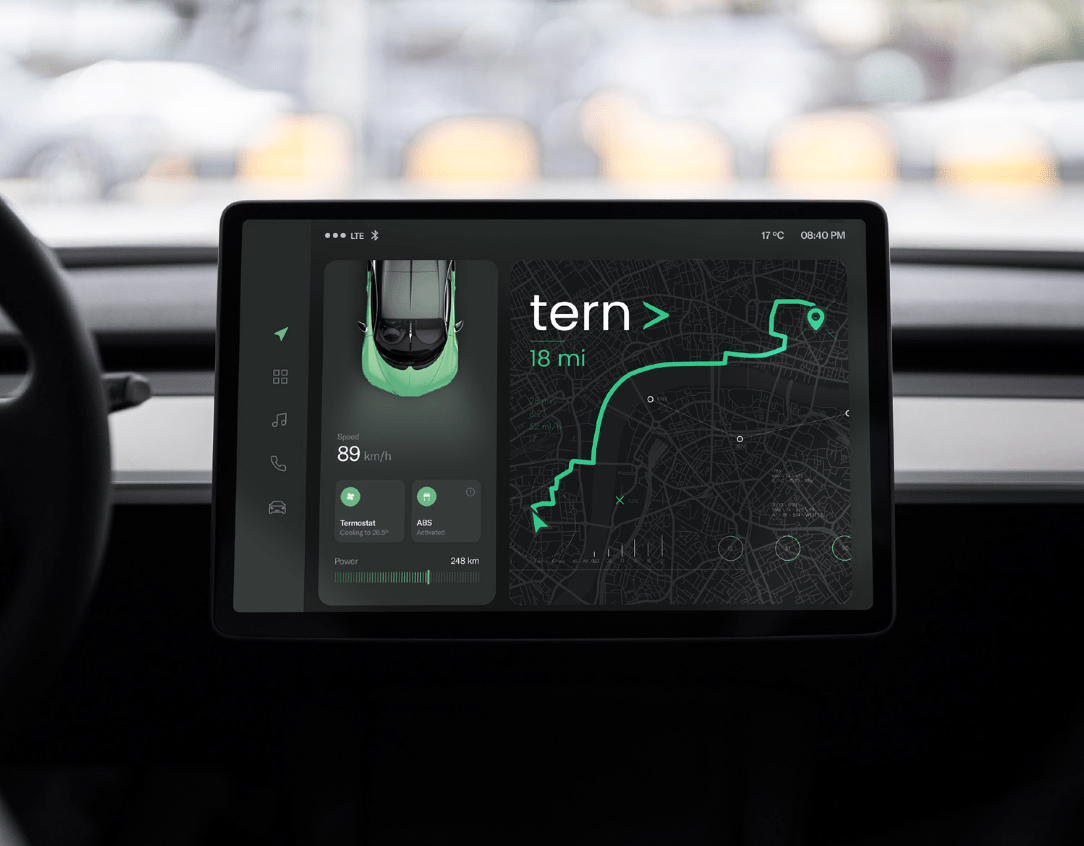The modern world depends heavily on GPS for critical systems such as aviation, road networks, emergency and disaster response, precision farming, power grids, weather forecasting, and military defense. However, this reliance is becoming problematic as foreign adversaries have shown the ability to interfere with GPS signals.
“We’ve got an increased threat from foreign adversaries who have shown capabilities to jam, to destroy, to spoof the signals of GPS, which is scary,”
– Shaun Moore, CEO and co-founder of Tern AI
Tern AI, a startup aiming to provide an alternative to GPS, recognizes the seriousness of this issue. “The economic impact in the United States, if that were to happen, would be catastrophic,” Moore told TechCrunch. “Our goal is to remove the bullseye that’s on the back of GPS right now.”
Recently emerged from stealth mode, Tern AI has secured a $4.4 million seed round from investors including Scout Ventures, Shadow Capital, Bravo Victor VC, and Veteran Fund. The startup has developed an Independently Derived Positioning System (IDPS) that can determine the position of a vehicle or person without requiring satellite signal. This eliminates the risk of signal jamming, construction, or dead zones interfering with the accuracy of the position.
“We can do GPS’s job without having to call to space and say, ‘Where am I?'” Moore explained.
The current GPS system works by using GPS receivers in cars or phones to pick up signals from satellites orbiting the earth. These signals contain satellite information and the exact time the signals were sent. The receivers then calculate the distance to each satellite based on how long it took for the signal to travel. By triangulating these distances, the receiver can determine its precise position, which is then displayed on apps like Google Maps or Waze.
While this approach, also used by newer constellations like Europe’s Galileo, creates a global and standardized positioning technology, it is also vulnerable to local disruptions. For instance, GPS spoofing has been used to manipulate vessels’ navigational paths, and signal jamming has caused significant disruptions for shipping companies.
Tern AI’s IDPS is powered by an AI model that collects and analyzes real-time sensor data from vehicles and phones, as well as third-party map data, to provide consistent and precise positioning. This model can be downloaded as software to compatible vehicles’ infotainment systems or smartphones. If a vehicle is not compatible, the system can use the smartphone’s sensors to determine the position, but in some cases, it may need to access the vehicle’s sensor data through the on-board diagnostics port.
The startup’s goal is for popular mapping products like Apple Maps, Google Maps, and Waze to use information from Tern’s AI model rather than relying on GPS. In the future, they plan to collaborate with these vendors to integrate directly with their technology.
The biggest advantage of Tern AI’s technology is its use of existing sensors, such as speed and motion sensors, on vehicles and smartphones. This led Diana Furchtgott-Roth, former deputy assistant secretary for Research and Technology at the DOT, to refer to Tern AI’s technology as a “low-cost answer to a problem that the [DOT] has been working on for decades.”
Compared to other alternatives like Low Earth Orbit Satellites or terrestrial beacons, which are both expensive to install and maintain, Tern AI’s IDPS is a more practical and cost-effective solution.
“GPS technology has not meaningfully changed in 50 years, and what we’re seeing put forth as solutions to resolve or mitigate risk are just marginal improvements. It’s not true innovation,” Moore stated.
He emphasized that while there have been some improvements to GPS, its fundamental nature remains the same, and there has not been enough progress in securing it from being targeted by malicious agents.
“One of our founding principles was ‘No Signal,’ meaning we are not going to look externally to help us determine where we are. Everything that you have available to you can do that now if you add intelligence to it,” said Moore.
Tern AI has conducted internal testing, following standards set by the U.S. Department of Transportation, to validate the accuracy of their technology. They have achieved a positioning accuracy within four meters, which aligns with the DOT’s guidelines for emergency services.
The startup is preparing for testing in July with a major partner in the logistics, shipping, and delivery industry, whose name has not been disclosed. Their commercial launch is scheduled for September.
Tern AI is also in talks with emergency services and autonomous last mile delivery companies, as these industries highly depend on accurate positioning information to carry out their tasks effectively. In the future, Moore plans to collaborate with the Department of Defense and the DOT as well, seeing them as potential partners.
“When we first met Tern AI, what stood out the most was how differentiated and scalable their approach was to solving a critical problem in national security,” said Stephen DiBartolomeo, principal at Scout Ventures. “When we came to understand the practical commercial applications and the compatibility with road autonomy, their vision for redefining positioning resonated with us.”
Correction: This article was updated to clarify that Tern AI has not yet reached out to mapping companies to integrate its technology.









istanbul hurdacı firmalar içinde lideriz hurdacı En yakın istanbul istanbul hurdacı telefonu olan numaramızdan ulaşabilirsiniz bayrampaşa hurdacı https://bit.ly/bayrampasa-hurdaci-telefonu
Thanks for sharing. I read many of your blog posts, cool, your blog is very good.